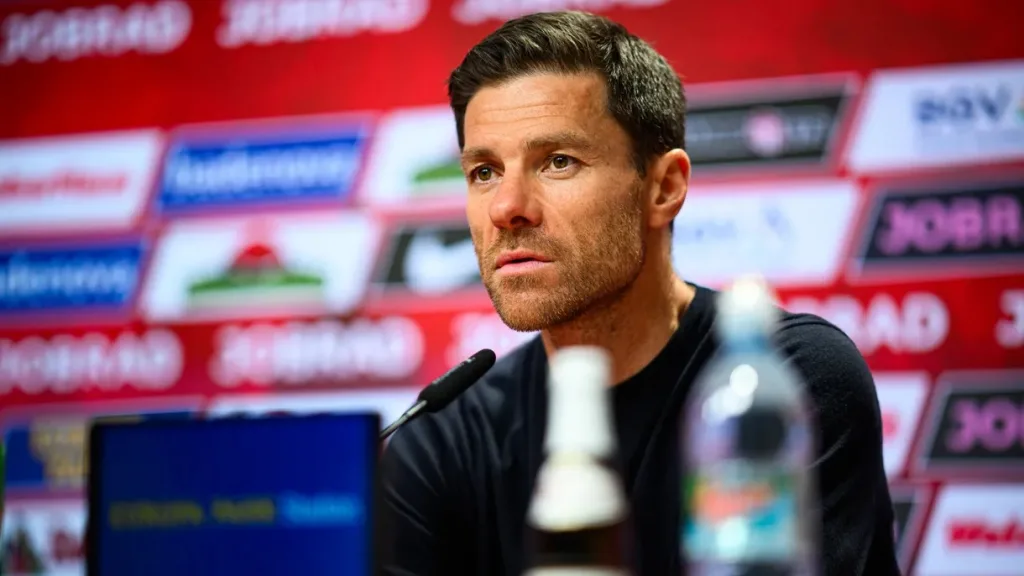Xabi Alonso’s impending arrival at Real Madrid as the successor to Carlo Ancelotti marks a pivotal moment for one of the world’s most storied football clubs. The 43-year-old Spaniard, who has carved out a reputation as one of Europe’s brightest managerial talents, is set to return to the Santiago Bernabéu, where he once dazzled as a player. His appointment, expected to be formalized after Ancelotti’s departure at the end of the 2024–25 season, heralds the beginning of a new era for Los Blancos. However, the transition from Bayer Leverkusen’s miracle worker to the helm of Real Madrid’s high-pressure cauldron is fraught with challenges and opportunities.
A symbolic changing of the guard
The transition from Ancelotti to Alonso is more than a managerial change; it is a symbolic passing of the torch. Ancelotti, the most decorated manager in Real Madrid’s history, has left an indelible mark, securing 15 trophies across two spells, including three Champions League titles and two La Liga crowns. His second tenure, beginning in 2021, brought stability to a club in flux, delivering a La Liga and Champions League double in 2022 despite financial constraints and squad limitations. Yet, the 2024–25 season has been disappointing, with Real Madrid trailing Barcelona in La Liga, exiting the Champions League in the quarterfinals to Arsenal, and losing in the Copa del Rey and Spanish Supercup finals. This trophyless campaign has paved the way for Ancelotti’s amicable departure, reportedly to take charge of the Brazilian national team, though recent reports suggest he may be considering a lucrative move to Saudi Arabia instead.
Alonso, a former Real Madrid midfielder who played a key role in the club’s 2014 Champions League triumph, steps into this void with a burgeoning reputation. His tenure at Bayer Leverkusen has been nothing short of remarkable. Taking over a team languishing near the bottom of the Bundesliga in 2022, he led them to a sixth-place finish in his first season and then orchestrated an unbeaten domestic double in 2023–24, clinching the Bundesliga title and the DFB-Pokal. This unprecedented success, coupled with his tactical acumen and emotional intelligence, has made him the ideal candidate in the eyes of Real Madrid president Florentino Pérez, who sees Alonso as the long-term answer to guide the club through a generational transition.
Adapting to Real Madrid’s demands
Alonso’s tactical philosophy, honed at Leverkusen, is rooted in positional play, vertical compactness, and adaptive pressing schemes. His preferred 3-4-2-1 formation emphasizes width through wing-backs and control of central zones via a double pivot, with center-backs splitting wide to build from the back under pressure. This approach transformed Leverkusen into a dominant force, but Real Madrid presents a different beast. The Bernabéu demands not only results but also a brand of football that captivates a global fanbase and aligns with the club’s storied tradition of attacking flair.
Adapting his system to Real Madrid’s squad will be a significant challenge. The team boasts world-class talents like Kylian Mbappé and Vinícius Jr., the latter set to sign a long-term contract extension, but it is also in a state of flux. Veterans like Luka Modrić and Toni Kroos, who have defined an era, are either nearing retirement or have already departed, leaving gaps in midfield. Youngsters like Endrick and Arda Güler are poised to become cornerstones, but integrating them into a high-pressure environment requires patience—a luxury rarely afforded at Real Madrid. Alonso must balance immediate trophy demands with the long-term development of this transitional squad.
Moreover, Real Madrid’s boardroom dynamics add complexity. While Alonso’s input on transfers is welcomed, final decisions rest with the club’s hierarchy, a structure that has yielded success but limits managerial autonomy. Reports indicate that Alonso agrees with the club’s need to strengthen at left-back, center-back, and midfield, but his pursuit of targets like Real Sociedad’s Martín Zubimendi and Leverkusen’s Florian Wirtz has hit roadblocks, with Zubimendi reportedly favoring Arsenal and Wirtz nearing a move to Bayern Munich. These early setbacks underscore the challenge of aligning his vision with the club’s strategic priorities.
Navigating the pressure cooker
Real Madrid is unlike any other club, where talent alone does not guarantee survival. The expectations are unrelenting: trophies are not just desired but demanded, and success must be immediate. Alonso’s experience at Leverkusen, where he operated with relative freedom and a supportive board, contrasts sharply with the intense scrutiny he will face in Madrid. The fanbase, accustomed to Ancelotti’s calm leadership and trophy-laden tenure, will expect Alonso to deliver instantly, while the Spanish media, known for its ferocity, will dissect his every decision.
His status as a club legend—having made 236 appearances and won La Liga and the Champions League as a player—may buy him some goodwill, but it also heightens expectations. Alonso’s ability to manage the dressing room will be crucial. Players like Mbappé, whose integration has been uneven, and Vinícius Jr., a leader in the making, will look to him for guidance. His emotional intelligence, lauded by Leverkusen players who admire his legendary playing career, will be tested as he navigates egos and fosters unity in a squad blending youth and experience.
The boardroom, led by Pérez, adds another layer of complexity. Known for his hands-on approach, Pérez values coaches who align with his vision. Alonso’s willingness to work within the club’s transfer framework, as evidenced by his acceptance that signings are club-controlled, suggests he understands this dynamic. However, he must also assert his authority to implement his tactical identity, a delicate balancing act that has tripped up even seasoned managers.
Building a new era
Despite the challenges, Alonso’s arrival offers immense promise. His tactical sharpness, demonstrated by Leverkusen’s unbeaten season, positions him to refresh Real Madrid’s playing style. His 3-4-2-1 could suit players like Mbappé and Vinícius Jr., who thrive in dynamic, attacking systems, while providing a platform for youngsters like Güler to shine. His track record of developing talent—evident in Leverkusen’s rise—bodes well for nurturing Real Madrid’s next generation.
Alonso’s coaching staff, including trusted assistant Sebas Parrilla and fitness trainer Alberto Encinas, will provide continuity from his Leverkusen setup, though the retention of goalkeeping coach Luis Llopis ensures some link to Ancelotti’s regime. His first test will come at the FIFA Club World Cup in mid-June 2025, a high-stakes tournament that Real Madrid views as a priority. Success here could set the tone for his tenure, silencing doubters and building momentum for the 2025–26 La Liga campaign.
The squad’s composition, while not requiring an overhaul, needs targeted reinforcements. The pursuit of a center-back like Leverkusen’s Jonathan Tah, whose contract expires in June 2025, aligns with Alonso’s familiarity with the player, though competition from Bayern Munich and Barcelona complicates matters. In midfield, replacing Kroos’s creativity remains a priority, and Alonso’s failure to secure Wirtz highlights the need for a Plan B. These transfer challenges will test his adaptability, but his experience as a player under pressure at Real Madrid equips him to handle the club’s unique demands.
The legacy at stake
Alonso’s move to Real Madrid is a homecoming, but it is also a gamble. His meteoric rise at Leverkusen has established him as one of the best young managers in the world, but the Bernabéu is a proving ground where reputations are made or broken. The parallels with Zinedine Zidane, another club legend who transitioned from player to manager, are striking, but Alonso’s coaching career is more advanced, with a proven track record that Zidane lacked when he took over in 2016. This experience could be his greatest asset, allowing him to instill his philosophy while commanding respect from a star-studded squad.
The 2025–26 season will be pivotal not only for Real Madrid’s ambitions but also for Alonso’s legacy. A successful campaign, marked by silverware and a cohesive playing style, could cement his status as the architect of a new dynasty. Conversely, failure to meet the club’s lofty standards could tarnish his reputation, as the Madrid spotlight spares no one. Alonso’s journey from Tolosa to the Bernabéu, via Liverpool, Munich, and Leverkusen, has been one of steady ascent. Now, as he prepares to lead Real Madrid, the football world watches with bated breath to see if he can translate his managerial magic to the grandest stage of all.


